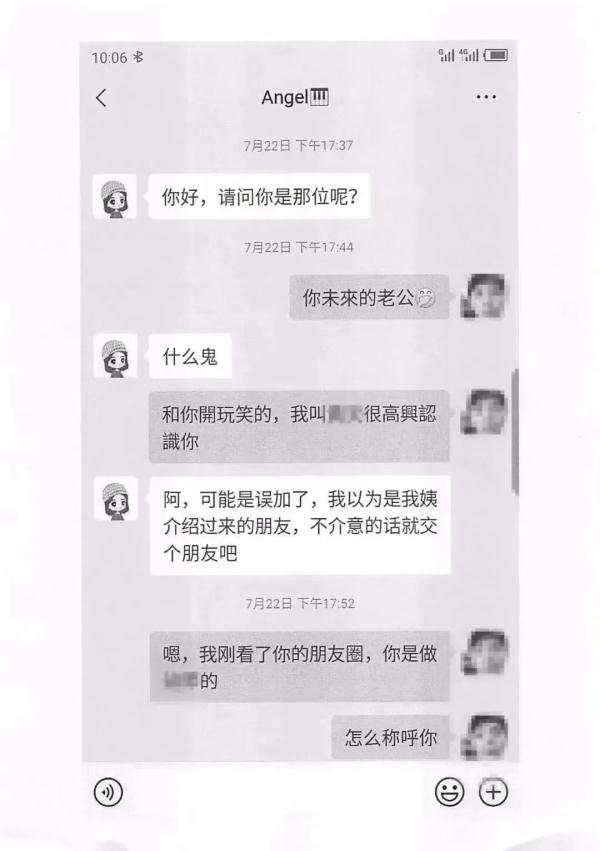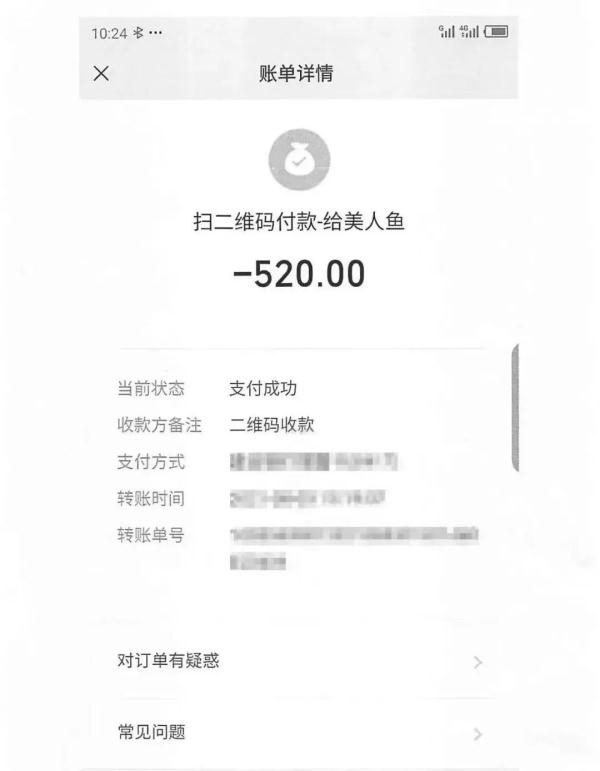After 20 days of online dating, the guy was cheated out of more than 50 thousand yuan! Please keep this anti-fraud guide.
Just after Chinese Valentine’s Day, watching others fly together, as you in single dog, you can have dating, envy and jealousy, but online dating needs to be considered! No, Xiao Wang, who lives in Wuhua District of Kunming, experienced a very "expensive" online dating experience.
One day in July this year, Xiao Wang, who has been single for a long time, couldn’t help but be eager to love, and added a strange woman’s WeChat through WeChat. After the successful addition, Xiao Wang looked through the circle of women’s friends and found that the woman looks lovely and has an excellent career, and she was moved at once.

Therefore, Xiao Wang took the initiative to launch an attack and chatted with women on WeChat. About a week later, the woman first expressed her good feelings to Xiao Wang and proposed to communicate on the premise that she could get married. Two days after the official online dating, the woman needed to send a flower basket to the opening of the gallery and asked Xiao Wang to transfer money to her.
After 20 days of online dating, the Kunming guy was cheated of more than 50,000 yuan! Please keep this anti-fraud guide →
Xiao Wang, who has just tasted the sweetness of love, has no sense. His eyes are full of "girlfriends", so he transfers 660 yuan to him without saying anything. Three days later, the woman asked Xiao Wang for 520 yuan on the grounds of her birthday.

Everything that followed seemed to be logical. In just 20 days after the relationship was confirmed, the woman "borrowed" more than 50,000 yuan from Xiao Wang for various reasons, such as her own surgery, family medical treatment and urgent need.
After the last "borrowing" was successful, the woman began not to reply to Xiao Wang’s information on the grounds that her mobile phone was flooded. During this period, the affectionate Xiao Wang insisted on contacting his "girlfriend" every day, until the end of July, only to find that he had been deleted by the other party. At this point, Xiao Wang realized that he might have been cheated.
Every holiday, especially "Valentine’s Day" and "Chinese Valentine’s Day", fraud under the guise of dating is increasing. Based on several types of high-incidence fraud methods in Valentine’s Day over the years, the police here send a guide to online dating fraud prevention to remind the general public to be vigilant.
Marriage website fraud
Major dating websites will hold various activities on the eve and day of Valentine’s Day, and criminals often take this opportunity to set traps. Fabricating false identities on dating websites to arouse the interest of victims. After several weeks of pursuing you online, you will often say that something unexpected has happened, asking you to transfer money or find other reasons to defraud you of your money.
Police tip: Most of the victims of this kind of fraud are single middle-aged men and women who have registered members on dating websites. They have certain economic strength, simple social interaction and are eager to choose a spouse through the Internet. Don’t believe in online dating advertisements. Before paying your heart and money, try to verify the true identity of the other party through various channels.
Online shopping gift fraud
On Valentine’s Day, lovers exchange gifts to express their love, which provides opportunities for criminals. When you select a gift on the shopping website to submit an order, you will receive a phone call or message claiming that the other party is the customer service of the website, and ask for a refund on the grounds that the order is abnormal. After that, you will provide a fake bank website with a Trojan horse program to obtain your bank card, ID card and other information, and finally transfer the money in the card.
Police tip: Some consumers who are not familiar with online shopping transaction process and online shopping guarantee methods are easily deceived. In case of such fraud, we must be vigilant, carefully check whether the domain name of the website provided by the other party is different, call the official customer service consultation in time, and identify the authenticity of websites such as online banking and online shopping platforms.
Advertising mail fraud
On Valentine’s Day, you may receive a lot of advertisements about chocolates, jewels and roses in your mailbox. Some criminals also take the opportunity to send users an advertising email with Trojan virus. Once users click on the link in the email, personal account information may be stolen by criminals.
Police tip: Don’t click at will to confirm the authenticity of the email address before checking the email.
Social tool fraud
On Valentine’s Day, some people look forward to the affair during Valentine’s Day. Liars look at people’s psychology and cheat "people nearby" through social tools such as WeChat and Momo. Some scammers change the WeChat avatar into a beautiful avatar and add nearby men as friends through the function of "finding people nearby". After adding friends, you will cheat money for various reasons.
The police reminded that criminals contacted the victim through the function of "people nearby", and then asked the victim to transfer money and remit money for various reasons. After the fraud was successful, they lost contact. Victims often can’t stand the temptation and fall into the trap set by the other party. Everyone should be vigilant against ambiguous information on social tools to avoid being used by criminals and being illegally infringed.
"killing pig plate" fraud
Liars pretend to be "single people", and after adding friends, they often chat with you to make you trust them. When the relationship is stable, it is convenient to start offering to take you to invest and make money together. At first, the liar will make you a few small profits through backstage operation. When you taste the sweetness, the liar will claim that he has mastered the rules of this APP, and as long as he or she invests, he or she can make a steady profit. After the victim has invested a large amount, the funds in the platform cannot be withdrawn.
Police tip: Never-met netizens and online lovers recommend you to invest and manage money online, speculate in digital currency (virtual currency), buy lottery tickets online and gamble to make money. All of them are liars! To be wary of ultra-high-yield investment, please choose a formal way to invest and manage money!
]